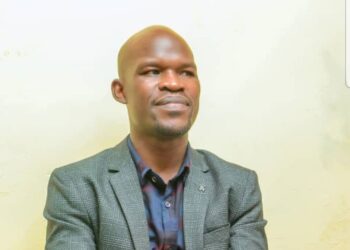The Parish Development Model (PDM) initiated by President Yoweri Museveni, is a strategy for organizing and delivering public and private sector interventions for wealth creation and employment generation at the parish level as the lowest economic planning unit.
Unlike Emyooga, the PDM has seven Pillars which include Production, Storage, Processing and Marketing; Infrastructure and Economic Services; Financial Inclusion; Social Services; Mindset change; Parish Based Management Information System in addition to Governance and Administration. However the mistrust and misinformation in so manning down the emyooga initiative, has greatly contributed towards PDM community publicity.
The goal of the Parish Development Model (PDM) is socio-economic transformation. It is based on improved productivity of households and enterprises at the parish level. Special vulnerable groups, like women, youth, and PWDs, are prioritised for its implementation. Yet, based on lessons from the past interventions, sober Ugandans like I would patriotically want to have a clear strategy for ensuring effective bottom-up participation other than the usual top-down community engagements.
For Socio-economic transformation ideology as one of the ruling party’s core pillars, the government has always facilitated revolving funds such as Emyooga, Youth Livelihood Programme, the Uganda Women Entrepreneurship Programme among others have been regarded as political donations from the government. Their timing can surely prove this since the PDM implementation plan is also not yet visible.
Soberly following his speech at kololo ceremonial grounds on Friday 20th August 2021, President Yoweri Kaguta Museveni appealed to the members of the 11th Parliament to support the government’s decision to put more money in the Parish development model to fast track economic transformation at the grass root. An idea that collected a yes-vote throughout as evidenced by a smooth parliamentary procedure in so obtaining the PDM budget moneys.
On explaining that the model starts with organizing the recipients themselves to make SACCOs where government puts money. The president said under this model, the people are the ones who decides for themselves and not their leaders in government. This looked to be the first step in community participation, though nothing has ever happened upto date.
The PDM as a government run microfinance initiative seeks to create a Shs400 billion revolving fund to help local farmers and entrepreneurs access credit. And so this is more of their policy paper work not being put to practical. The government has always littered its financial interventions across projects such as the Youth Livelihood Programme, throwing the financing and supervision of such projects into confusion. For PDM is dead by parish chiefs since their recruitment is made of corruption throughout!
Regardless of Mr.Tibuhaburwa’s emphasis onto the stakeholders themselves through a revolving fund, receiving the money for Parish development model unlike Emyooga, farmers being the central stakeholders in agriculture, crop growing and cattle keeping as a pivotal arenas of PDM implementation plan, they cannot access these amounts orally or through online pdfs!
The 48 Laws of Power (1998) takes an irreverent look at the fundamental characteristics of power, and how to understand it, defend against it and use it to your advantage. Essentially, it’s a self-help book offering advice on how to gain and maintain power, using lessons drawn from parables and the experiences of historical figures. At times it can be heavy, drawn out and a little hard to work through (I’ve found this to be true of other works from Greene also). However, chip away at this collection of historical allegories about competency, and you will uncover some very powerful information.
The 48 Laws of Power is banned in some US prisons, why? Well, because it openly deals with the topic of manipulation. The Art of Seduction, also written by Greene is banned in the same prisons. Make of that, what you will.
I thought I would make a document containing the majority of the pieces I underlined in this book, mostly for myself to look back on, but, I also thought it would make an interesting blog for anyone considering giving the book a go. I will put the laws from which I took the excerpt in bold.
Skipping law 11, I’ll begin with law 13 that calls for appeal to people’s self-interest when asking for help. This 13th law advises the authority figures never to bother reminding their subjects of their past assistance and good deeds rather to instead find a way to ignore them(subjects) and uncover something in their request for them to respond enthusiastically when the power figures want something done. This is the case after Emyooga sailing towards PDM.
Law 15 that calls for the crushing of enemy totally, is almost done since the legislative arm of the government especially the Parliamentary opposition would have been one of the chief enemies of PDM. Parliament chose silence over the matter!
Law 18 advises the authority figures not to build fortresses for purposes of their protection over themselves. This is reflected in the manner through which the PDM is trending with no practical idealism at hand. The continued model talk shows and media meniscus is protecting the model power figures from isolation as condemned by the same law.
It is therefore my humble prayer as a social development enthusiast, for the government of Uganda to recreate itself and employ the surrender tactic not as law 22 & 25.
In this very book, I implore GOU to also employ law 21 for purposes of the common people being represented inline with community participatory notion.
Uganda continues to service the loans even before the programs commence and Minister Kasaija once said that some projects take as much as three years before the implementation commences while loan servicing starts immediately. In the same state, PDM is approaching the second year without visible practical idealism being presented to the public.
It should be remembered that the cabinet approved the implementation of PDM as the delivery strategy for transition households out of the subsistence economy with effect from 01 July 2021. And not yet implemented as at the date of writing! Who to blame?
For God and my Country
Lukanga Samuel
+256 785 717379
lukangasamuel55@gmail.com
The writer is a social development enthusiast and a judicious yello youth leader from Nakaseke District
Do you have a story in your community or an opinion to share with us: Email us at editorial@watchdoguganda.com













